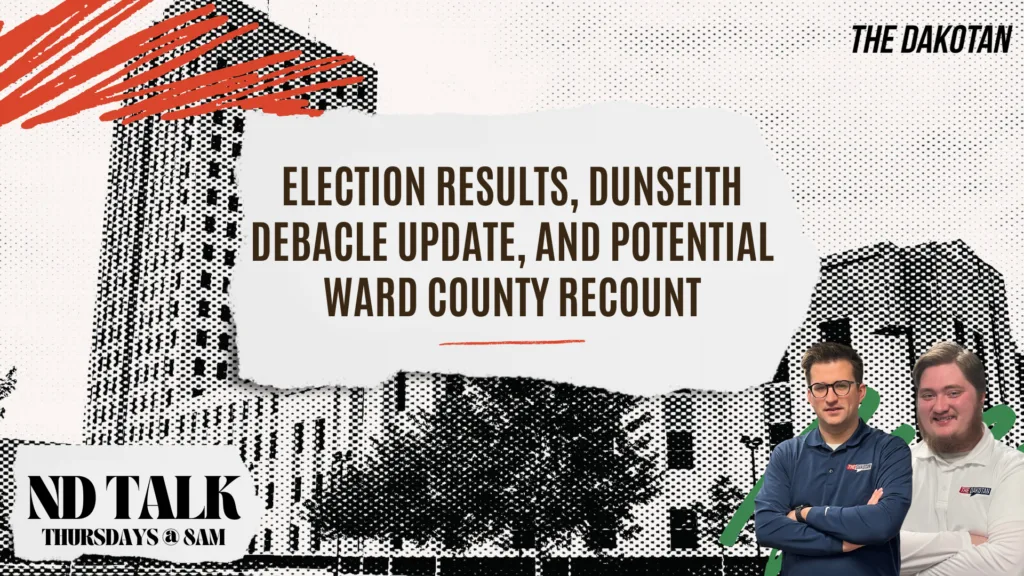

On a recent episode of "ND Talk," Jonathan Starr and Kyler Collom discussed the outcomes of the recent elections at both the national and local levels. They began by noting that Donald Trump was re-elected as President, defeating Kamala Harris, with Republicans gaining a solid majority in the U.S. Senate. They mentioned that Kelly Armstrong was elected as the new governor of North Dakota.
The conversation shifted to North Dakota's election results. In the U.S. Senate race, incumbent Senator Kevin Cramer won re-election, with Katrina Christiansen receiving about a third of the vote. Julie Fedorchak was elected to the US House of Representatives and received the highest number of votes among any candidate in the state. Jonathan and Kyler speculated about her potential future in higher office, given the trend of previous commissioners advancing to national positions.
They reviewed the outcomes of state ballot measures:
At the local level, they highlighted the Ward County Commission race, noting that Jim Rostad, Ron Merritt, and Miranda Schuler secured the three seats. The race between Schuler and incumbent Shelly Weppler was particularly close, but Weppler indicated she would not request a recount. They also mentioned a tight county commissioner race in Mercer County that would trigger an automatic recount due to a nine-vote difference.
Jonathan and Kyler discussed the potential for property tax reform in the upcoming legislative session. They referenced statements from legislators like Koppelman and Louser, noting that despite Measure 4's failure, there might still be efforts to address property taxes. They also mentioned that Governor-elect Armstrong has expressed interest in reforming property taxes.
Transitioning to the "Dunseith debacle," they talked about a recent interview with Senator Kevin Cramer on KFYR Radio, where he addressed issues related to Dunseith, North Dakota. Jonathan and Kyler felt the interview raised more questions than answers. They announced an upcoming interview with Charles Hofer, aiming to provide a clearer understanding of the situation.
Lastly, they analyzed voter turnout trends, comparing the 2020 and 2024 elections. They observed that both Trump and Harris received fewer votes than the candidates in the previous election, attributing some of the changes to early voting patterns and overall voter engagement.